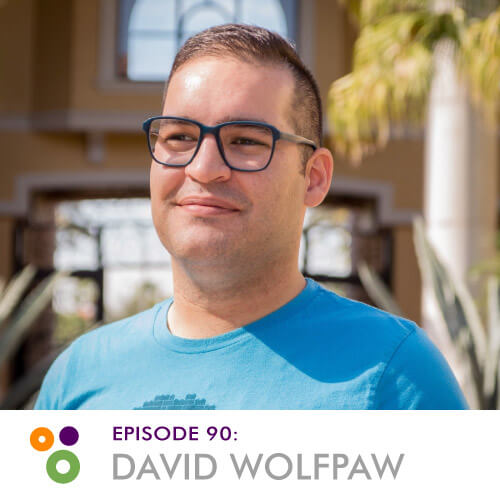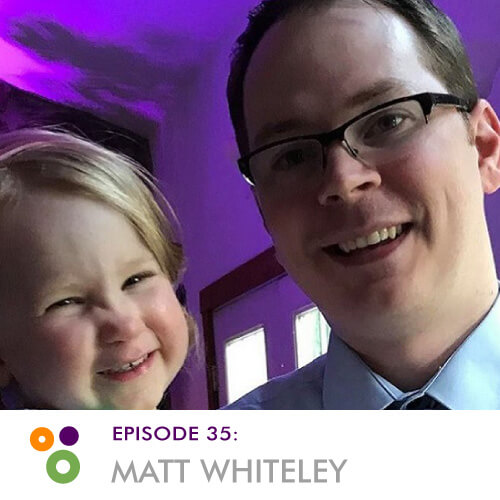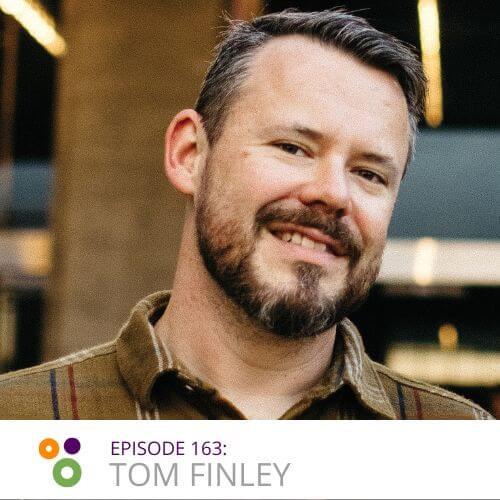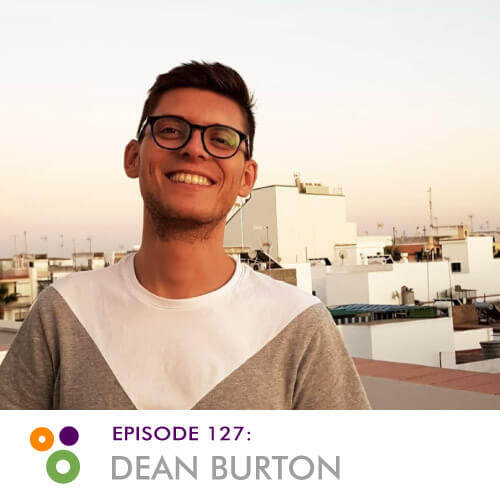Episode 136 – Annejeanette Washington Collins

Podcast: Play in new window | Download
Subscribe: RSS
Introducing Annejeanette Washington Collins
Annejeanette is a teacher at both the elementary and collegiate level. She teaches children at a school in western Florida, and college students in Fort Lauderdale. Annejeanette is a WordPress advocate, blogger, and WordCamp presenter.
Show Notes
Twitter | @ProfessaDiva954
Instagram | @ProfessaDiva954
Website | Magnificent Mom Moments
Preferred Pronouns | She/Her
Episode Transcript
Tara: This is Hallway Chats, where we meet people who use WordPress.
Liam: We ask questions and our guests share their stories, ideas, and perspectives.
Tara: And now the conversation begins. This is Episode 136.
Tara: Welcome to Hallway Chats. I’m Tara Claeys.
Liam: And I’m Liam Dempsey. Today we’re joined by Annejeanette Washington Collins. Annejeanette is a teacher at both the elementary and collegiate level. She teaches children at a school in western Florida, and college students in Fort Lauderdale. Annejeanette is a WordPress advocate, blogger, and WordCamp presenter. Welcome, Annejeanette. Thanks for being here today.
Annejeanette: Hello, everybody. Tara, Liam, thank you so much for the invite.
Tara: Thanks for joining us today. We’re really happy that you’re here as well. Can you tell us a little bit more about yourself, a little more introduction?
Annejeanette: Yeah. This is my 28th year of teaching in Broward County, which is sandwiched between Miami and West Palm Beach. This is my 18th year as a college professor. I love what I do. I definitely am an advocate for WordPress. I’m really blessed to be in this career for the long haul. And I’m happily married to a Major, and I have a miracle daughter named Jada. And love family, love the beach, love serving in the community.
Tara: That’s wonderful. What do you teach?
Annejeanette: So presently, I am a fifth grade teacher in western Florida. I teach ELA, language arts, social studies, and technology. At the collegiate level, I teach computer science.
Tara: Tell us a little bit about your background in computer science. Did you learn that in order to teach it or how did that become part of your teaching repertoire?
Annejeanette: About 20 years ago, at that time, I was a middle school teacher, my principal had noticed that I had a knack for breaking down computers, literally breaking them apart and putting them back together. So she encouraged me to pursue my master’s degree in educational technology and curriculum. When I turned 30, one of the goals that I had for myself was to go back and get my master’s degree. So that’s how I began this journey. And it’s been a fun ride for the past 20 years working with students, working with college students, working with nonprofit and profit organizations, and really learning and mastering the craft of educational technology.
Liam: That’s such an evolving field, right? I mean, 28 years ago—I’m trying to think when that was—I mean, there were computers in the classroom, but not a ton. And there was internet in the classroom, but not a lot of classrooms and not trickled in and not reliable stuff in. Now we’re seeing in the last three to five months that that technology, because of COVID, is forcibly changing again. You have probably seen more than most people have seen. Talk about that, that evolution of technology, and what that looks like over the years in teaching.
Annejeanette: When I went to college at the University of Miami, my senior year we had a computer lab that was using a little Apple Books. I mean, not Apple books. It’s like those hard Apple…I think they were Apple At Ease. They were just boxy and little. And then Hurricane Andrew hit. So we went from having computers to having nothing.
When I graduated, I just remember, “Okay, where do we start?” So I landed my first teaching job in a middle school in Fort Lauderdale. They had a computer lab, but not as heavy as it began to happen in 2000. 2000 we had a whole overhaul where classrooms were actually getting computers. We had Apple with the colors in the back. You could pick your color to match your classroom. So I did that for a while.
Then my district moved from Apple to Windows. So during this whole, as you call it, process, I’ve been learning how to do dual language in technology. You had to know Apple, and you had to know Windows.
Liam: Those are really different in the early days. That was literally apples and oranges (no pun intended).
Annejeanette: So I had to learn that so that I can empower and teach my college students, my middle school students. Even taught high school. So just had to really master learning two languages in technology.
Then in about 2005, I was offered the position of the computer science teacher at the elementary level. And that’s how I ended up at the school where I’ve been now for 15 years. Even at the school that I’m at, it has evolved, where it was elective and now it is pretty much in everyday instruction I have to use my computer. And not just one computer. Sometimes I’m literally maneuvering three. Which leads me into the WordPress.
Because when I first started WordPress it was just to play around with it, see what it’s about. Then now I find myself teaching my fifth graders how to blog their essays or respond to a classmate’s post or publish their STEM work—A STEM project that they’ve created where they put their research, and their PowerPoint, or their sway into the WordPress platform. So it has truly been a roller coaster ride, and I’ve enjoyed every minute of it.
Tara: That’s so wonderful. I love hearing that you’re using WordPress with kids in school. It seems like something that is evolving. But I don’t hear that much about WordPress being used by kids in schools. So that’s really great. How did you discover WordPress?
Annejeanette: Graduate school. I used it in graduate school. Then I introduced it to my college students because I was teaching them what…at that time, the word blog and vlog were new. So I had to teach them, “Okay, this is a blog and this is the software you can use.” Then I took a break from it for a while. Then 2016, 2017 is when I got very much involved, because of my daughter, with WordCamp. She was invited to speak and that’s what rekindled the fire again for me to use WordPress in my classroom and at home.
Liam: Wow. I feel like we could do weeks of conversation on what you’ve shared in the opening minutes here, whether it’s technology or teaching or WordPress, and you teaching children to use it. There’s just a ton there.
Annejeanette: It is.
Liam: I’m always interested when I come to technology, and I use it a certain way, and I have my flow. And then I show it to somebody or teach somebody, and I come back a period of time later, and they’re doing something totally different that my brain just would never have landed on. I’m wondering since you’re seeing so many young people, whether it’s grade-schoolers or college-age folks using WordPress, I wonder…and this is kind of going to put you on the spot to think of something. So sorry about that. But what’s been some of the more interesting examples of somebody taking WordPress and you say, “Well, yeah, I guess I can do that. That’s amazing. I never would have thought about using it that way. That’s really cool.”
Annejeanette: I would have to say going to WordCamp and seeing the high schoolers take the basics of it and create…I saw a young lady. She literally created her own business online e-business, e-commerce. She competed in… this was a virtual technology conference for high schoolers, won a scholarship right here in South Florida. The young people, it’s like a sponge with them. They just take it, they absorb it, and they make it their own.
I just sit back and I’m kind of like the cheerleader. Do you. Or as I was saying, “Go on girl. Do your thing.” Because what we teach them is just to light the fire, then they just let it burn. Or basically like a thing of clay. We show them how to mold it wet it, sculpt it, and then make it into something that is theirs. Whether it’s a bowl, a vase, a cup. That’s pretty much the analogy I think I can use with WordPress that the generation born from 2000, I would say, moving forward, that’s exactly what they’ve done to any and everything they touch.
This generation, my daughter would be in this category, my niece, Victoria would be in there this category, the students that I’ve had over the last 20 years, they just take it, they make it, and they own it. And I love it because what worked for me in 2000, or even in 2015 isn’t going to work into 2021. So my job is to just teach them fundamentals and then let them see what they can create and innovate on their own. Let them have some critical thinking with it. Let them think about what they’re going to do with it. And then let them use their imagination, their creativity, and just own it and make it theirs.
This is an exciting time. If we continue to use that, I think it’s an exciting time for WordPress. It’s an exciting time for those of us in the field of educational technology, and it’s definitely an exciting time for those who have a passion with technology to really watch and see it evolve.
Tara: Do you find that your students have an easy time or stumble at any point when they’re learning WordPress?
Annejeanette: Oh they stumble. And that’s part of the process. I’m okay with them stumbling. But I realize there’s a tenacity with this generation. They stumble, they’ll get frustrated, and then they’ll get right back up again and try it again until it works for them. That’s what I’ve seen.
Tara: Are they learning basic posts? Are you teaching them theme editing and all that type of thing? How deep are you going with these kids?
Annejeanette: Well, as a writing teacher, I want to see their process. I always look at the processes of their writing. So they may post something in early September, and I realized they haven’t gotten to the meat of their thesis and their evidence and their claims. But by April, they’re writing a full five-paragraph essay. So what I like is for them to see their evolution as a writer, and if they add sound or links, or this or that. So that’s what I look at.
Then I notice in that journey, they begin to discover other things and publish other things. And I’m like, “Okay, I see you’re onto something.” That’s what I look at as both elementary teacher and even in my college students when they’re blogging or creating things.
Liam: Annejeanette, I’m just thinking as you’re talking here, and I love that you’re using WordPress for that. Because they could use a Google Docs to do their writing. But to see the evolution of the writing, that’s so much easier to do in a blog where you just go to the next post, next post, next post. So if you have a month archive, you jump from September to May of the following year. And you can do that so much easier on your phone. What a great way! What a fantastic way to go about that! I am just kind of sitting here in awe by your wisdom and your approach.
Annejeanette: They need to see the journey. They need to see the process. They need to see the struggle. A lot of times they don’t see it until the end of the year and see what they’ve been able to do. Even my daughter. She hasn’t blogged in a while but when she was, I’ve seen her processes as well. So it’s important that we take a look at our process in learning.
Tara: Agreed. Agreed. We ask all of our guests, Annejeanette about success. So I’m going to ask you that question now, which is how you define success and maybe even how you measure it or what it means to you in terms of following up on being successful. What does that mean for you?
Annejeanette: Being successful for me, I have a three-word acronym. I should say, 3Fs. My faith, my family, and my focus. Those are my three things that I focus on that to find success for me. My faith—I live by that daily. Having faith and being grounded in my faith. My family, and definitely the ability to focus in whatever I’m being assigned or taxed to and completing it. That is the definition of success.
Annejeanette: I like that. The 3Fs. Those are all good words to live by. So your daughter, you’ve mentioned is using WordPress. I know I got to see her for a moment when we first met. Can you tell us a little bit about Jada and what she is doing with WordPress as well?
Annejeanette: Jada, she’s definitely my miracle child. We are involved in an organization called Black Girls Code. There was a workshop that was presented on using WordPress, and one of the instructors are very well known WordPress user here in South Florida, namely Nora, just began to introduce it to her. At that time, she was only 8-years-old. She learned, she built her own website. She was asked to speak at WordCamp. From that event till this past summer, she has taken the use of technology with WordPress and made it her own networking, coding, blogging, building. It’s been a wonderful journey to watch her become her and at such a young age.
I like the networking pool here in South Florida. A gentleman by the name of David Bisset and his wife have embraced the young people in South Florida to get involved with WordPress. As a matter of fact, we have our own little mini-conference during WordCamps. So the young people get to sit and learn e-commerce, and blogging, and STEM. I just loved it. I bring my students to the WordCamp here in Miami because Lenore and David Bisset and some of the other organizers are just fully committed to what I’m fully committed to. And that’s empowering the young people in WordPress. So she has become a part of that. So I’m excited.
My husband is slowly learning. He does a website called DadsBeonDuty and he’s blogging. So now I’m trying to move him over to WordPress. We’re going to try to make this a family thing. Then I have my magnific mom moments where I just reflect on what it’s like being a mom in the 21st century. So we’re slowly transitioning our family, if you will, to WordPress slowly.
Tara: That’s so wonderful. Shout out to David Bisset and what he’s done with the community in the Miami area and his team that works with him there. You’re among them, and I know William Jackson and Ada, they all participate in just an amazing, amazing campaign to get kids using WordPress and learning tech and learning code and loving it. It’s amazing what they’ve done. I’ve seen it evolving over the years.
Can you tell us a little bit about Black Girls Who Code because I am a big supporter of that organization? Haven’t seen it in my area actively. Is that very active where you are? What can you tell us about that?
Annejeanette: Well, because COVID-19 we’ve actually gone virtual. So they’ve been having a lot of virtual events nationwide. Kimberly Bryant is the founder. She’s out of the west coast in the Oakland, California area. So she set up this movement for young girls of color to learn and get involved with STEM. I’ve been involved now for almost five years through my daughter. And it’s just such a joy to see the organization. no matter what city they’re in, just begin to evolve. The mentoring that they do, the matches, the camaraderie. So it’s just really nice to be a part of that.
My daughter is also with a group called ITWomen where they also have a mentor who you’re matched to. That’s just another this Girls Who Code. So many. But those are the three that I can say have impacted my daughter and myself. WordPress for sure, and WordCamp. I’d see women, Claire Marrero, and of course Black Girls Code with Kimberly Bryant.
Liam: There’s a lot of work to pivot what was previously in-person training to online. And I’m not telling you anything you don’t know. I’m involved with an organization up here in Philly called Philly Tech Sistas, and it is focused on helping women of color get into careers in tech. So typically adult women who are looking to position into some kind of programming, development, technology-based career.
And we’ve been trying to put together online programs because all there come to a Saturday, come to a Saturday and Sunday weekend training course and pay a reasonable amount of money to walk away with a lot of knowledge and a lot of context of folks who are willing to mentor and teach and guide. You just can’t do eight hours on a Saturday. So how do you take eight hours on a Saturday and turn that into two-hour chunks. It’s a lot of work. So shout out to you and do your colleagues and to the folks that you’ve mentioned that are making that transition in no short order.
This is not like, “Hey, this is the way technology is going. We should evolve this way.” Technology just changed about three months ago when we were told to stay home. We got to make this happen. And it’s all-volunteer which makes it even more challenging because there’s the home chaos of everybody being at home because of COVID-19. There’s a lot. So thank you for the work that you’re doing and for the work that the women that you’ve mentioned are doing as well.
Annejeanette: Thank you. As busy and challenging as it is, it’s also an opportunity. I always love serving in the community. I do a lot of volunteer work, both with my church and just with other organizations. But to now streamline that to strictly virtual, I look at it as an opportunity. Yes, you got to do a lot of reorganizing a lot of planning, and you got to make sure things are up and running, but it’s just a great opportunity for those who are willing to do the work. And they can make it work.
I had to do some training with Canvas and some other virtual learning management systems. And you’re right, taking eight hours of training and breaking it into chunks. I was working with the organization to just do the training and I realized, okay, what I could do in eight hours face to face, we’ve got to look at times and dividing it by four, divided by three. But we made it happen. But like I said, it’s a lot of planning, a lot of thinking outside the box. It can work.
Liam: I’m hearing, Annejeanette, a lot of practical instances of your three F’s, your faith, your family, and your focus coming through in that. I loved your definition. I didn’t get a chance to share that back with you. But I love seeing it really clear that that is your life, and that it is a commitment that you’ve made. It sounds like you really get a lot of value and joy and functionality out of as well.
Well done for figuring that out. There’s a lot of us who we don’t always know that. I want to change gears and ask you about advice. And the question is not the advice that you would share, Annejeanette, but what some advice that you’ve been given, or you read or you stumbled upon, or you saw on a sign somewhere and successfully implemented in your life.
Annejeanette: This dedicated to my mother. My mother is probably one of the strongest women I know. And I say that because she was a widow at 33 years old. She’s a lupus survivor. She’s a breast cancer survivor. So it was a season of my life I was going through some things and I just said I can’t make it through the day. And she said, “Well, if you don’t make it through the day, try to make it through one hour. If you can’t make it through one hour, make it through the minute. And the minutes do add up.” And that’s all she said to me.
That was about 15 years ago. Looking now, she was right. Just if the day just doesn’t work for you and you’re overwhelmed by the day, just take it minute by minute or hour by hour. She always said they do add up and you’ll find yourself getting through or working through the process. So that is probably the best advice from my mom, Lynette that was ever given to me.
Liam: That seems so timeless. It seems particularly valid and relevant for the chaos we find ourselves in these days.
Annejeanette: Mmh. Mmh. When she was going through chemo and going through different things, and she was having her bad moments, she would just say, “Okay, I don’t like this day, but I’m going to make it through the next few minutes or the next hour. And we just watched her. And she did it. And now she’s been cancer-free 10 years, and lupus, no markers in the last 15 years. I just have learned so much from my mom. To me that advice, like you said, it’s priceless and timeless.
Tara: Yeah. That’s great to hear that your mom’s doing so well after all this time. It sounds like she’s given advice that she has learned herself. So getting through those hard times, sometimes it is just counting one hour at a time or running a race one mile at a time, however you break it down. But try not to look too far ahead. And seeing that big, long journey ahead of you, which, as Liam mentioned, right now is where we can tend to go sometimes in our heads when you have this kind of uncertain time ahead of you. So thank you for sharing that. That’s really helpful advice. I’m sure I’ll be taking that to heart as well.
Speaking of these uncertain times that we’re in right now, and being a teacher, I’d like to ask you about how you are feeling about approaching remote learning both for your college students and for your younger students. How challenging that will be for you? You sound like you’ve got a really positive attitude. So how are you approaching that? Also for your daughter, as a parent, how are you thinking about that this time ahead for the uncertainty of school situation?
Annejeanette: My district, Broward County Schools has voted for 100% virtual learning. I am very grateful for that because it gives me a peace of mind with how instruction is going to be. For my daughter, I think for her, it’s a little bittersweet because she loves that socializing and being in sports, that kind of thing. But right now, with the numbers that they’re looking in Florida, I think it’s the right thing. I’m pretty comfortable with eLearning virtually. I had a blast with my students from March to June, and I will continue to instruct with excitement and compassion. I think that has to also be a part of the equation.
We could teach teach teach, and we can tech tech tech, but we’ve got to have some compassion with this as well. Because a lot of families in South Florida have been greatly impacted around the globe. We need to show some compassion. But I’m excited and looking forward to teaching virtually until things are better.
Liam: Things like compassion empathy is important. Yeah, go ahead, Tara.
Tara: Nope. I was going to say thank you for sharing. It’s comforting to hear your approach being positive and compassionate.
Annejeanette: Oh, yes. Yesterday I was on a six-hour course with making sure that is a part of the equation. I’ve always been committed to that but now even more so.
Liam: I’m delighted to hear that. And I feel like this is a conversation that we could continue for hours. But we are at our time limit and I’m afraid it’s gone by so, so quickly. Annejeanette, thank you so much for joining us. Before we say goodbye, can you share where folks can find you online?
Annejeanette: Yes. I got a lot of places. The first place is of course on Twitter @ProfessaDiva954. On Instagram, @professordiva954. You can just find me with WordCamp Miami on previous conferences, Annejeanette Washington Collins. Google it and you’ll see my involvement with that. And of course on my school, Manatee Bay Elementary. Shout out to the Bay.
Liam: Yaay!
Annejeanette: Definitely.
Liam: Thank you so much. What a pleasure to get to know you a little bit here. Thank you for your time and for your energy, and your insightful words.
Annejeanette: Thank you. It’s been a pleasure
Tara: Thanks. Bye-bye.
Annejeanette: Bye-bye.
Tara: If you like what we’re doing here – meeting new people in our WordPress community – we invite you to tell others about it. We’re on iTunes and at hallwaychats-staging.ulpgsyz6-liquidwebsites.com.
Liam: Better yet, ask your WordPress friends and colleagues to join us on the show. Encourage them to complete the “Be on the show” form on our site, to tell us about themselves.





